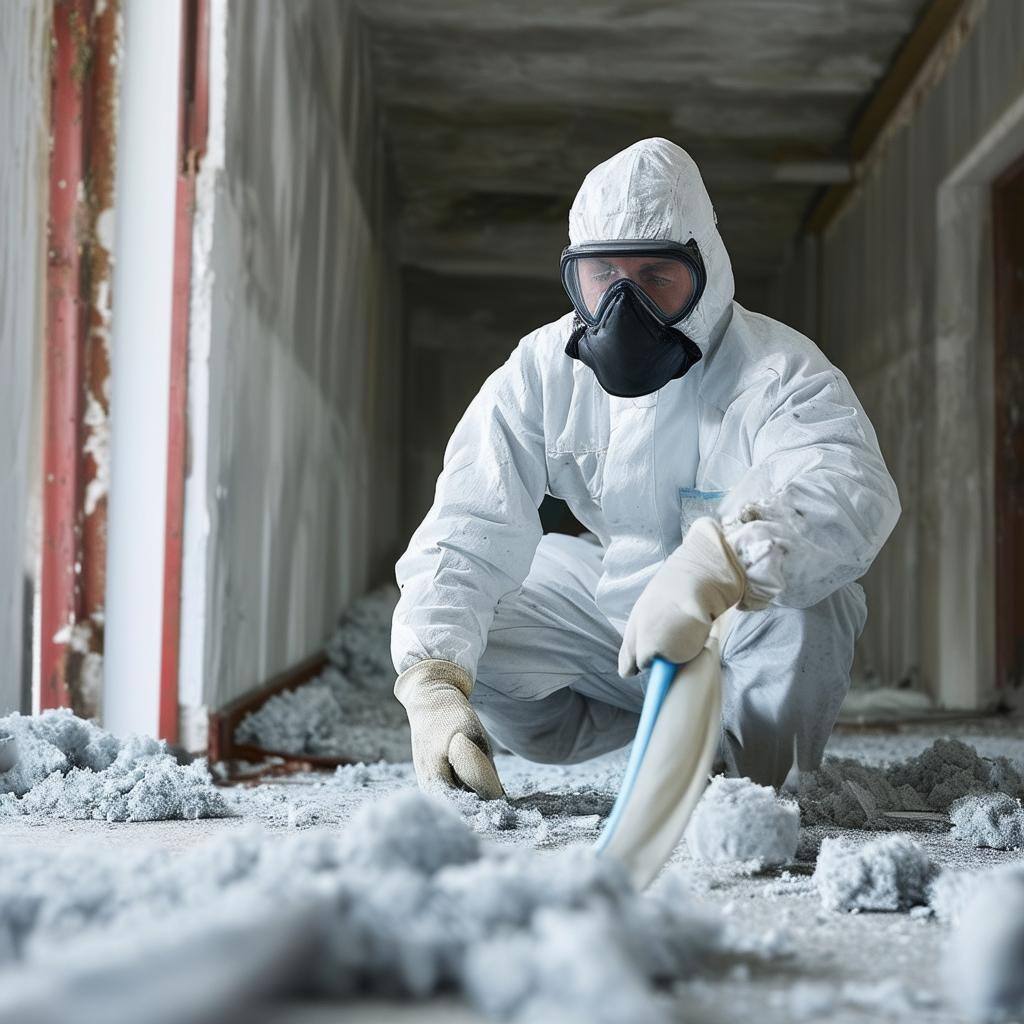Real estate agents vs asbestos: turning challenges into opportunities
Real estate agents vs asbestos: turning challenges into opportunities.
When it comes to maximizing property value, Revive is revolutionizing the way homeowners approach renovations. Their vision—a world where every homeowner effortlessly transforms their property into its highest value—aligns with the needs of real estate agents navigating the challenges of asbestos in older homes. As trusted partners in helping clients achieve their property potential, real estate professionals can benefit from understanding how to handle asbestos effectively while ensuring smooth transactions. Let’s dive into what you, as an agent, need to know about asbestos and how to address it confidently.

What is asbestos, and why is it a concern?
Asbestos, once a popular material for insulation and fireproofing, is now notorious for its health risks. Commonly found in homes built before the 1980s, asbestos can lurk in insulation, ceiling tiles, flooring, roofing, and even old drywall. While it is safe when undisturbed, any renovation, demolition, or damage can release microscopic fibers into the air, posing severe health risks such as asbestosis, lung cancer, and mesothelioma.
For real estate agents working with older properties, asbestos can complicate sales. Clients often ask, “Will asbestos lower my property’s value?” or “Is it safe to move in?” This is where your role as a knowledgeable advisor comes into play—equipped with the right information, you can guide them through the next steps.

Signs you might be dealing with asbestos
As a real estate agent, you might come across situations where asbestos could be present. For example:
- The property was built before the 1980s. Older homes are more likely to contain asbestos in some form.
- You see signs of wear and tear. Crumbling tiles, damaged insulation, or peeling popcorn ceilings could indicate asbestos risks.
- A client mentions prior renovations or additions. If these were done before regulations were in place, asbestos may still be present.
If you suspect asbestos, it’s essential to act cautiously. Never disturb the material, as this could release hazardous fibers.
So, what should real estate agents do?
When faced with potential asbestos, your first step should always be to stay calm and take measured actions. Here’s how you can navigate the situation effectively:
- Avoid disturbing the material: Asbestos becomes dangerous when it’s damaged or disturbed, so advise your clients to avoid touching or modifying the suspected areas.
- Recommend professional testing: Partnering with a certified asbestos testing service is critical. Testing ensures accurate identification and sets the stage for safe handling.
- Educate buyers and sellers: Transparency is key. If asbestos is present, it’s important to disclose this information to all parties involved in the transaction.
- Involve specialists: If removal is necessary, connect clients with licensed asbestos abatement companies (such as JJ&S) to ensure safe and compliant remediation.
- Understand regulations: Familiarize yourself with local and state laws, such as APCD Rule 1206 and Cal-OSHA Title 8, which govern asbestos handling in California.
By connecting clients with licensed abatement specialists and guiding them through proper testing and disclosure, you can ensure a smooth process while protecting their investments. Taking these steps not only safeguards your clients but also strengthens your role as a trusted advisor in the real estate journey. Need resources? We’re here to help. 👇
How asbestos impacts property value?
Asbestos can affect a property’s value, but the impact depends on how it’s handled. While some buyers may be hesitant to purchase a home with asbestos, others will see it as an opportunity if the issue is addressed professionally. Proper remediation can restore confidence in the property, making it more attractive to potential buyers.
This is where Revive shines. Their mission is to simplify the renovation process, helping homeowners address challenges like asbestos while maximizing property value. By partnering with the right contractors and overseeing every step of the renovation, they ensure a seamless experience for homeowners and agents alike.

The role of real estate agents
As a real estate agent, you are often the first point of contact when asbestos becomes a concern. Your role goes beyond simply identifying the issue—you serve as a trusted advisor who can connect clients with the resources they need to resolve it.
Consider building a network of professionals who specialize in asbestos testing and abatement. This not only makes the process easier for your clients but also positions you as a knowledgeable and resourceful agent.
Partnering with Revive for success
In addition to addressing asbestos, real estate agents can benefit from Revive’s innovative approach to renovations. Their tools and programs are designed to make the process of hiring and managing contractors effortless, ensuring projects stay on track and within budget. With their focus on maximizing property value, Revive helps agents turn potential obstacles into opportunities.
For example, their dedicated personnel and easy-to-use tools allow homeowners to oversee every aspect of a renovation project, from asbestos removal to aesthetic upgrades. This level of support ensures that properties are market-ready and achieve their full potential.

Encountering asbestos in a property can seem daunting at first, but with the right approach, it doesn’t have to derail a transaction. By staying informed, partnering with professionals, and leveraging resources like those offered by Revive, you can guide your clients through the process with confidence.
Real estate agents play a vital role in helping clients navigate challenges like asbestos while ensuring their properties reach their maximum value. With Revive as your ally, you can transform obstacles into opportunities, ensuring smoother transactions and happier clients.
FAQ: real state agents vs asbestos
1. What should I do if I suspect asbestos in a property I'm representing?
If you suspect asbestos, avoid disturbing the material and advise your client to hire a certified professional to test for it. Once confirmed, consult with licensed asbestos abatement specialists to handle removal safely. Transparency with buyers and sellers is crucial, so ensure that any findings are disclosed during the transaction.
2. Can asbestos affect the sale of a property?
Yes, asbestos can impact the sale of a property if not addressed properly. Some buyers may see it as a red flag, but by taking the necessary steps—testing, disclosing, and, if needed, remediating—it’s possible to reassure potential buyers and maintain the property's value. A professional approach often mitigates buyer concerns.
3. Are sellers legally required to disclose asbestos in real estate transactions?
In most states, including California, sellers are required to disclose the presence of asbestos if they are aware of it. Failing to do so can lead to legal complications. As a real estate agent, it's important to guide your clients through disclosure requirements and ensure compliance with local regulations.








